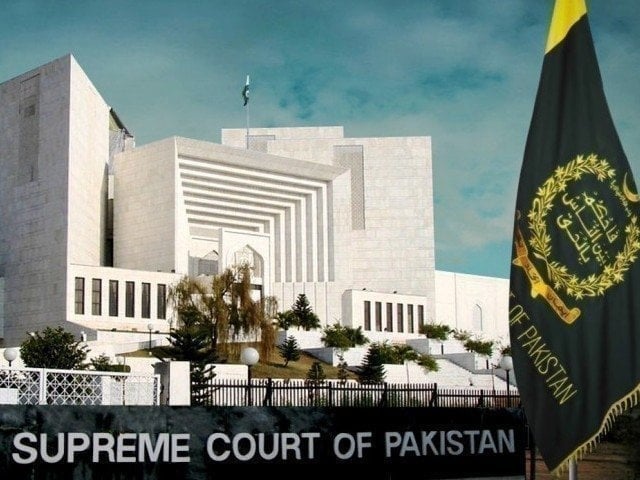ISLAMABAD:
The head of a constitutional bench (CB) hearing petitions filed against the transfer of three judges to the Islamabad High Court (IHC) and a subsequent change in the judges’ seniority list has noted that the case under review is first of its kind.
During hearing of the case, Justice Muhammad Ali Mazhar agreed with counsel for one of the petitioners, Barrister Salahuddin, that there is no precedent in the past for a permanent transfer of a judge from one high court to another. “This is the first case of its kind involving such a transfer,” he said.
Earlier, Barrister Salahuddin argued that a judge’s seat cannot be vacated through a transfer, and a permanent transfer would render Article 175-A of the Constitution ineffective.
Article 175A establishes the Judicial Commission of Pakistan (JCP), which is responsible for appointing judges of the Supreme Court, high courts, and the Federal Shariat Court.
He stated that under Article 200, only temporary transfers are permissible, and permanent appointments can only be made by the JCP.
Justice Mazhar noted that under Article 175-A, new appointments can be made, adding that “appointment” and “transfer” have different meanings.
Salahuddin said a meaningful consultation is essential in any judge’s transfer, and without it, the entire process is a mere formality. He alleged that information was concealed and inaccurate details were provided during the transfer of three judges to the IHC in February this year.
Justice Mazhar said the case involves interpretation of constitutional and legal points. He noted that three chief justices were involved in the transfer process and not everything was in the hands of the executive. Consent of the transferred judge is also obtained, he added.
Salahuddin referred to civil service rules, stating that when two individuals are appointed on the same day, seniority is determined by date of birtha principle the SC has upheld in a previous reference.
He also cited the Aslam Awan case, which called for clear rules on judicial seniority. Attorney General for Pakistan (AGP) Mansoor Awan stated that once the SC defines a principle, the rules will follow.
Salahuddin requested that the Supreme Court decide the case based on civil service rules, past precedents, and the principle of equality.
Justice Mazhar asked what becomes of a judge’s previous service if he takes a new oath after his transfer from one high court to the another. “In India, even if a judge takes five oaths upon transfer, their determined seniority remains unaffected” but Pakistan does not have an “All Pakistan Cadre”.
He said the court is raising questions for the sake of clarity and informed judgment, noting that when a high court judge is elevated to the SC, their final pay certificate reflects 11 or 12 years of service.
Salahuddin responded that while benefits and pension would be retained, the judge’s seniority would be reset. He urged the court to consider the impact on the sitting judges of the court receiving the transferred judge.
It would be unjust, he said, for a judge ranked 16th in one court to become the senior-most judge in another, ahead of those who were previously more senior. IHC Acting Chief Justice Sardar Muhammad Sarfraz Dogar, one of the judges transferred to the IHC in February, ranked 16th in the Lahore High Court.
Justice Mazhar reiterated that no such objections were raised by judges of the Lahore High Court and instructed the lawyer to stick to issues related to IHC. He added that if arguments conclude by June 16, the court may issue a short order after consultation with judges on the same day.
Barrister Salahuddin requested the case be heard until the next day. Justice Naeem Akhtar Afghan noted that some judges on the bench would not be available. Justice Salahuddin Panhwar commented that rebuttal arguments can include questions. The hearing was adjourned until 9:30am on June 16.

